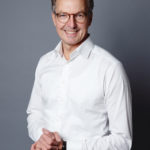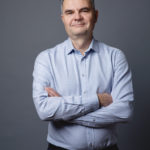In the early 1990’s companies started to pay more attention to their environmental impacts. At the same time energy markets were opened, technology development picked up and a profound change in the energy business commenced. Ambitious and successful corporations wanted professional analyses and management of environmental and energy matters.
We both believed that it was up to our generation to solve the key environmental questions, and that they were too important to be left to politicians alone. To change the environmental challenges to opportunities we – together with other experts – wanted to offer tailored professional services to corporations.
The collaboration, Gaia, was unambiguously an environmental consultancy in the 1990s. From the very beginning, the premise was that the issues we work on are simultaneously local and global, and that Gaia and its clients must rank among the best in the world with their expertise. In the 1990s, environmental and energy issues were heavily politicised. That is why Gaia strongly emphasized neutrality and sometimes even overemphasized professionalism in its working culture. We wanted our clients to see us primarily as professionals, not idealists. You can still see touches of this in the Gaia culture. The same ideal of objectivity is still a feature of Gaia’s client work.
Gaia’s business, staff and the range of professionals’ expertise grew steadily. One important turning point was in 1999, when Gaia was chosen to take part in the coordination of the post-conflict environmental assessment and recovery operations in the Balkans. At the turn of the millennium the team and its skillsets expanded, particularly in organizational risk management, innovation, and resilience issues. In the early 2000s, we also opened several new offices around the world in quick succession.
During the first decade of the 2000s, the focus of Gaia shifted from isolated environmental and energy projects towards strategic consulting as questions relating especially to climate change started to gain more attention in corporations. Gaia redefined itself first as a sustainable development consultancy and then in the 2010s, as a sustainable business consultancy.
Gaia’s work is based on the premise that corporations play a central role in the fight against climate change and the loss of biodiversity. At the same time, we at Gaia believe that sustainable transformation is a gigantic strategic and business opportunity.
While the focus of Gaia is in advancing sustainable transformation, or susformation as we like to call it, we also work very closely with public organisations, NGOs and the scientific community. It is important for Gaia’s experts to have a deep knowledge of the operational environment where the change takes place. There is no time to waste in the fight against climate change and the loss of biodiversity, which means that everything that is currently being planned and built, supports decarbonization. This is no longer a question of simply adopting new strategies and business models but of concrete, large-scale investment decisions.
Becoming a part of Sweco in 2021 was a natural continuation of Gaia’s development which has continuously aimed at increasing impact. Sweco is a leading European player in the design of societal and industrial infrastructure. As an individual company with a strong mandate but as a part of Sweco, Gaia is now writing a logical new chapter in its 30-year-long story. Gaia’s job now is to make certain that climate targets are the starting point when the cities and the industries of the future are being built.
Environment, Corporate Responsibility, Climate, Disaster Management
pasi.rinne@gaia.fi
+358 400 464 127
Energy, Climate, Environment, Risk Management, Sustainable Business, Bioeconomy, Strategies, Due Diligence, M&A
juha.vanhanen@gaia.fi
+358 50 5641889




